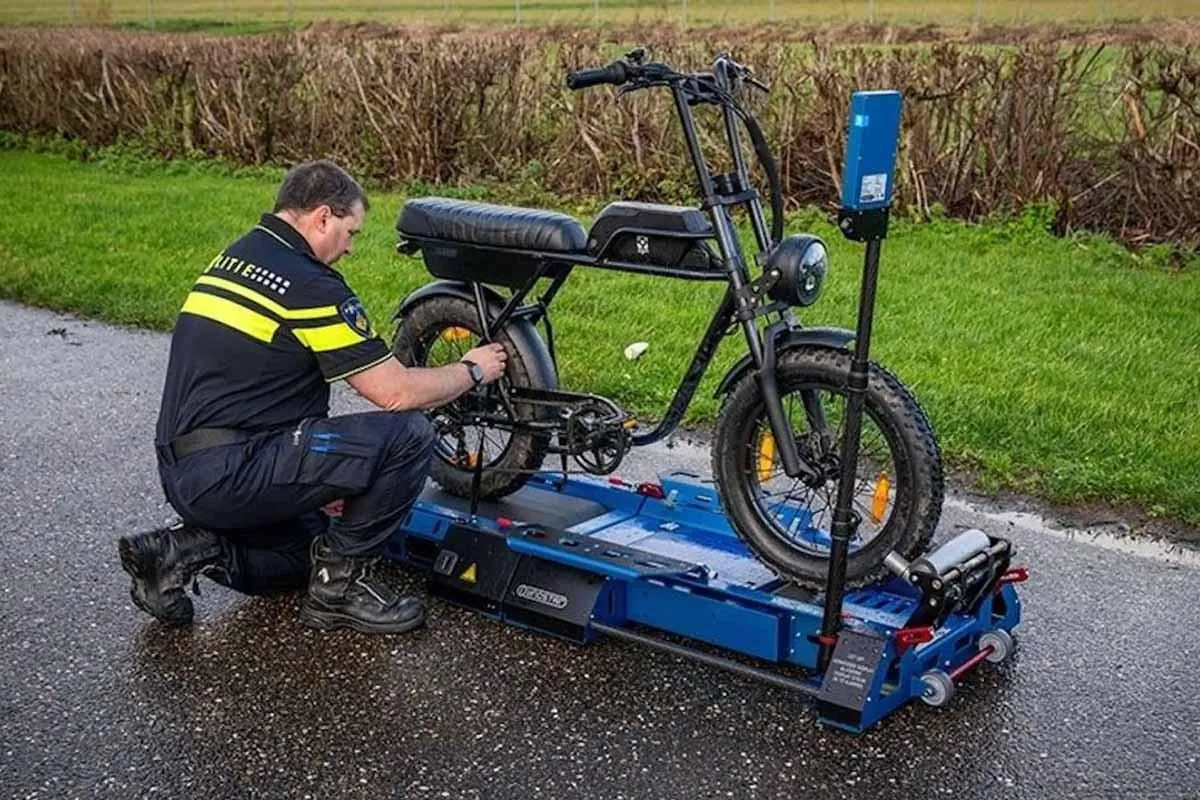The United Kingdom has witnessed a significant surge in police seizures of illegally modified electric bicycles, commonly known as e-bikes. In the year leading up to August 11, 2024, law enforcement agencies across the country confiscated 937 e-bikes, nearly doubling the previous year's figure of 511. This dramatic increase highlights growing concerns about the safety risks posed by these modified vehicles.
Chris Hook, acting sergeant and member of the City of London Police's cycle unit, emphasized that a diverse range of individuals are using these illegal e-bikes. From commuters to food delivery workers, and even criminals engaged in phone snatching, the appeal of these high-speed vehicles spans various segments of society.
The primary issue with these modified e-bikes lies in their ability to exceed the legal speed limit of 15.5 mph, at which point the electric motor should cut out. However, many of these bikes have been altered to reach much higher speeds, with some capable of traveling at 60 mph or more. This fact is particularly alarming when considering that e-bikes were first developed in the 1890s, with the first patent for an electric bicycle filed in 1895.
The weight of these modified e-bikes also presents a significant danger. Hook reported encountering a bike weighing over 50 kg, which is substantially heavier than the average e-bike weight of 40-70 pounds. The combination of excessive speed and weight dramatically increases the risk of severe injury or fatality in the event of a collision with a pedestrian.
In a recent operation outside London Liverpool Street railway station, police quickly identified and confiscated an illegal e-bike. The seized vehicle had a motor with a power output of 500 watts, double the legal limit of 250 watts. It also featured worn-out tires and exposed electrical wiring, prompting one officer to describe it as a "death trap."
While the global e-bike market is booming, with sales expected to reach $118.6 billion by 2030, the rise of illegal modifications poses significant challenges. E-bikes offer numerous benefits, including reduced carbon emissions compared to cars and improved mobility for those with limited physical capabilities. However, the misuse and modification of these vehicles undermine their potential positive impact.
The surge in e-bike seizures varies across different police forces in the UK. Wiltshire Police reported an increase from 24 to 64 seizures, while Police Scotland saw a jump from 60 to 233. Other notable increases were observed in Derbyshire, Northumbria, and South Wales.
It's worth noting that e-bikes can be highly efficient, traveling up to 100 miles on a single charge and potentially reducing commute times by up to 50% compared to traditional bicycles. However, the illegal modifications negate these advantages and create serious safety hazards.
The availability of conversion kits online, some priced as low as £300, has contributed to the proliferation of illegal e-bikes. A spokesperson for Electrical Safety First, an organization campaigning for stricter e-bike and e-scooter regulations, warned about the risks associated with these kits:
"Well-manufactured conversion kits, when installed safely by a competent individual, can be a great way of converting a conventional bike into an e-bike. However, some kits sold online offer the rider the ability to flout legal speed and power limitations, effectively turning the device into a moped, and may also be sold with substandard components."
As authorities continue to grapple with this growing issue, the focus remains on public safety and enforcing existing regulations. The rapid evolution of e-bike technology, which has come a long way since the first commercially successful e-bike was produced in Japan in 1980, presents ongoing challenges for lawmakers and law enforcement alike.
